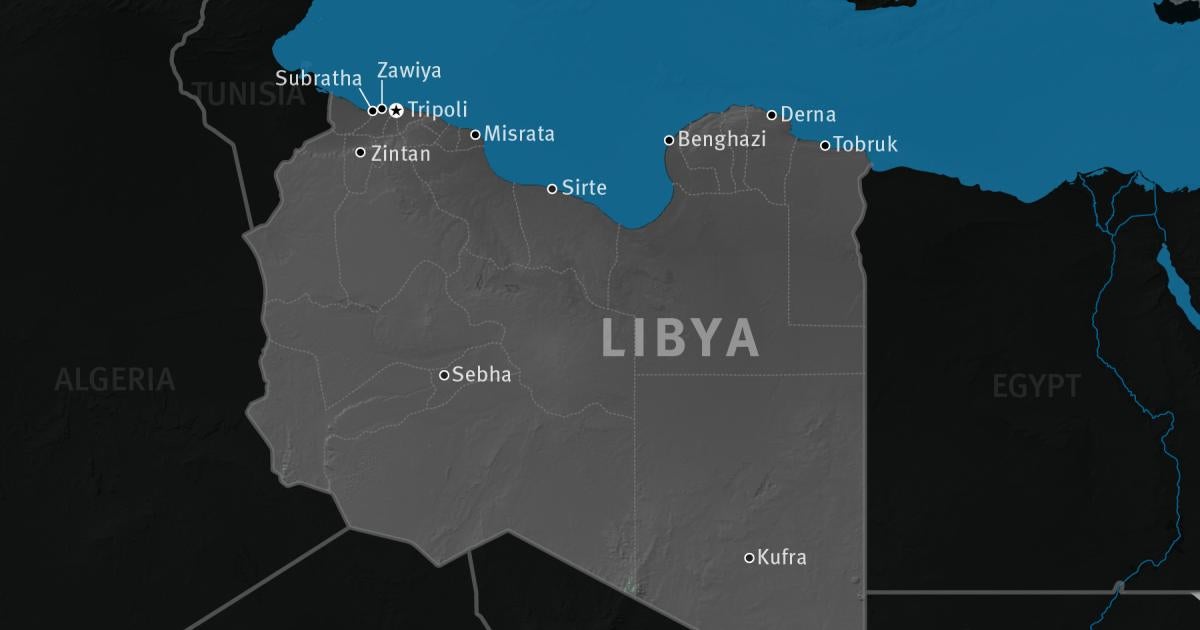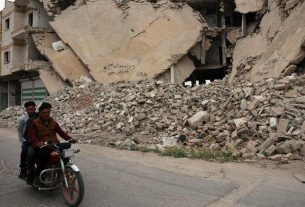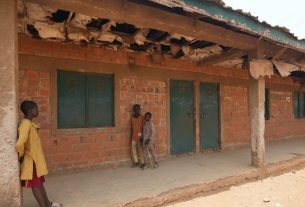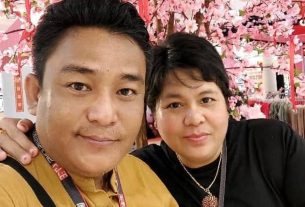(Beirut) – A Libyan political analyst who had been arbitrarily detained in eastern Libya for nearly seven months died under dubious circumstances on April 19, 2024, Human Rights Watch said today. Libya authorities should immediately and impartially investigate the death of the political analyst, Siraj Dughman, in the Benghazi General Directorate for Internal Security.
On October 1, 2023, the Benghazi-based Internal Security Agency arrested Dughman, along with Fathi al-Baaja, a university professor and former member of the 2011 National Transitional Council, and Tarek al-Bishari, a politician, accusing them of planning to “overthrow the army.” In October, the agency also arrested and detained a journalist and former diplomat, Nasser Eldaessi, and a political activist, Salem al-Oreibi, in connection with the same case. Libyan authorities had not charged any of them with a recognizable offense.
“Eastern Libyan authorities’ tainted record of deplorable detention conditions and lack of due process raises serious questions about the circumstances of Dughman’s death,” said Hanan Salah, associate Middle East and North Africa director at Human Rights Watch. “Eastern Libyan authorities and the Tripoli-based General Prosecutor should urgently investigate Dughman’s death.”
In a video statement released on April 20, Benghazi’s Internal Security Agency said that Dughman died on April 19, after “an escape attempt through a restroom window by climbing exterior pipes, leading to him falling head-first from an elevated location.”
Hamid Dughman, Siraj Dughman’s brother, first announced the death via a Facebook post on April 19. Dughman’s grandfather, Saleh al-Ghazal, told Human Rights Watch that he had been permitted to visit his grandson four times after his detention, and that he has been treated humanely he said, and that he visited the other four detainees twice. He said the family received Dughman’s body on the day he died from Al-Jalaa Hospital in Benghazi, and buried him the next morning. He said Siraj’s body had been affected by the incident, and they had only partially shown him during the overnight vigil at the family home in consideration of his family’s feelings.
“The authorities only told me that Siraj had attempted to flee and that he died after falling,” al-Ghazal said. “I cannot confirm or deny anything else about the incident. I raised Siraj, it was a very difficult and painful sight for us as a family to see him, and it’s hard for us to bear. As a family we ask that the investigation into the circumstances of Siraj’s death is transparent and impartial. We don’t accuse or exonerate anyone without basis.”
The Benghazi Internal Security Agency should immediately conduct an independent, fair, and transparent investigation into the circumstances of Dughman’s death and hold those responsible for any unlawful acts to account, Human Rights Watch said.
Eastern authorities consist of the armed group the Libyan Arab Armed Forces (LAAF) and affiliated security apparatuses and militias, who control eastern and southern Libya. A civilian eastern-based affiliated administration is known as the “Libyan Government.” Their rivals, the Tripoli-based Government of National Unity (GNU), which was established after a UN-brokered political dialogue, and affiliated armed groups, control western Libya.
Dughman and the two others were arrested on October 1 after they participated in discussions at a symposium on the repercussions of the collapse of the Derna dam after catastrophic flooding killed thousands of people.
Dughman was the director of the Benghazi branch of the Libya Center for Strategic and Future Studies, a Libyan research organization, which organized the symposium. The group said in a statement said that the meeting was intended to discuss the general situation in Libya in the aftermath of the eastern Libya floods. Al-Baaja is the head of the political bureau at Libya for All Party, al-Daeissi is a member of the political bureau, and al-Bishari is the secretary general of the party. Dughman is not affiliated with any political party or group, al-Ghazal said.
Based on social media and Libyan media reports, the men were arrested after a complaint by someone who had attended the seminar. Al-Ghazal categorically denied any allegations against his grandson, calling the complaint “baseless and malicious.”
In the security agency’s April 20 video, a spokesperson alleged that Dughman had been detained for organizing the meeting with the intention to overthrow political institutions and the eastern-based Libyan Arab Armed Forces.
Catastrophic flooding in eastern Libya, affecting mostly the coastal city of Derna, killed at least 4,352 people in September 2023, while at least 8,000 remain missing. Despite early warnings, officials in eastern Libya issued conflicting orders about evacuations and imposed a curfew that effectively trapped people in the path of torrents of water after the collapse of two dams. Libyan experts had raised concerns about the dam preparedness ahead of the storm.
The Libyan General Prosecutor’s Office opened a domestic investigation into the events shortly after the flooding, while Libyan nongovernmental groups and Human Rights Watch have called for an independent international investigation.
Ashour Shwail, head of Libya for All Party, and a presidential hopeful for future elections, said in an interview on October 31, that he had obtained information that the investigation into Dughman, al-Baaja, and al-Bishari was completed and that they were exonerated. Dughman’s grandfather told Human Rights Watch that he knew that the security agency had interrogated Siraj but that he did not know whether Siraj was interrogated by the Public Prosecution or not .
The failure of Libyan authorities to charge the men with a recognizable offense for nearly seven months led to their arbitrary detention. Al-Baaja, al-Bishari, Eldaessi and al-Oreibi should be released immediately, Human Rights Watch said.
On April 21, the United Nations Support Mission in Libya urged “authorities to conduct a transparent and independent investigation into the circumstances surrounding [Dughman’s ] death.” The mission stressed that Dughman, and the four men held with him, were “arbitrarily arrested and detained in 2023,” that they were “never formally charged or appeared in court,” and called for their immediate and unconditional release.
Friends and relatives of the men had previously expressed concern over their detention conditions, warning that al-Baaja has heart and kidney conditions that require specialized medical attention.
On April 29, the US Embassy in Libya urged authorities to conduct a “full investigation.” On the same day, the European Union Delegation and the diplomatic missions of the EU Member States in Libya also urged authorities to conduct “a comprehensive, transparent, and independent investigation of the incident,” and called for the “immediate release of all individuals arbitrarily detained and reasserting the importance of adherence to due process and the rule of law across Libya.”
Libya’s criminal justice system is weak, with serious due process concerns, Human Rights Watch said. Judges, prosecutors, and lawyers are at risk of harassment and attack by armed groups. Military courts continued to try civilians. Scores of people across Libya are held in prolonged detention without trial in prisons run by militias and only under the nominal control of authorities. Inhumane conditions, including severe overcrowding, torture, and ill-treatment, are prevalent in some facilities. A 2023 UN report found “reasonable grounds to believe that acts had been committed that undermined the independence of the judiciary and curtailed the rule of law.”
“The Internal Security Agency in Benghazi has a lot to answer for when it comes to the death of Dughman in their custody,” Salah said. “The authorities should promptly release all those held in arbitrary detention in connection to this case.”



